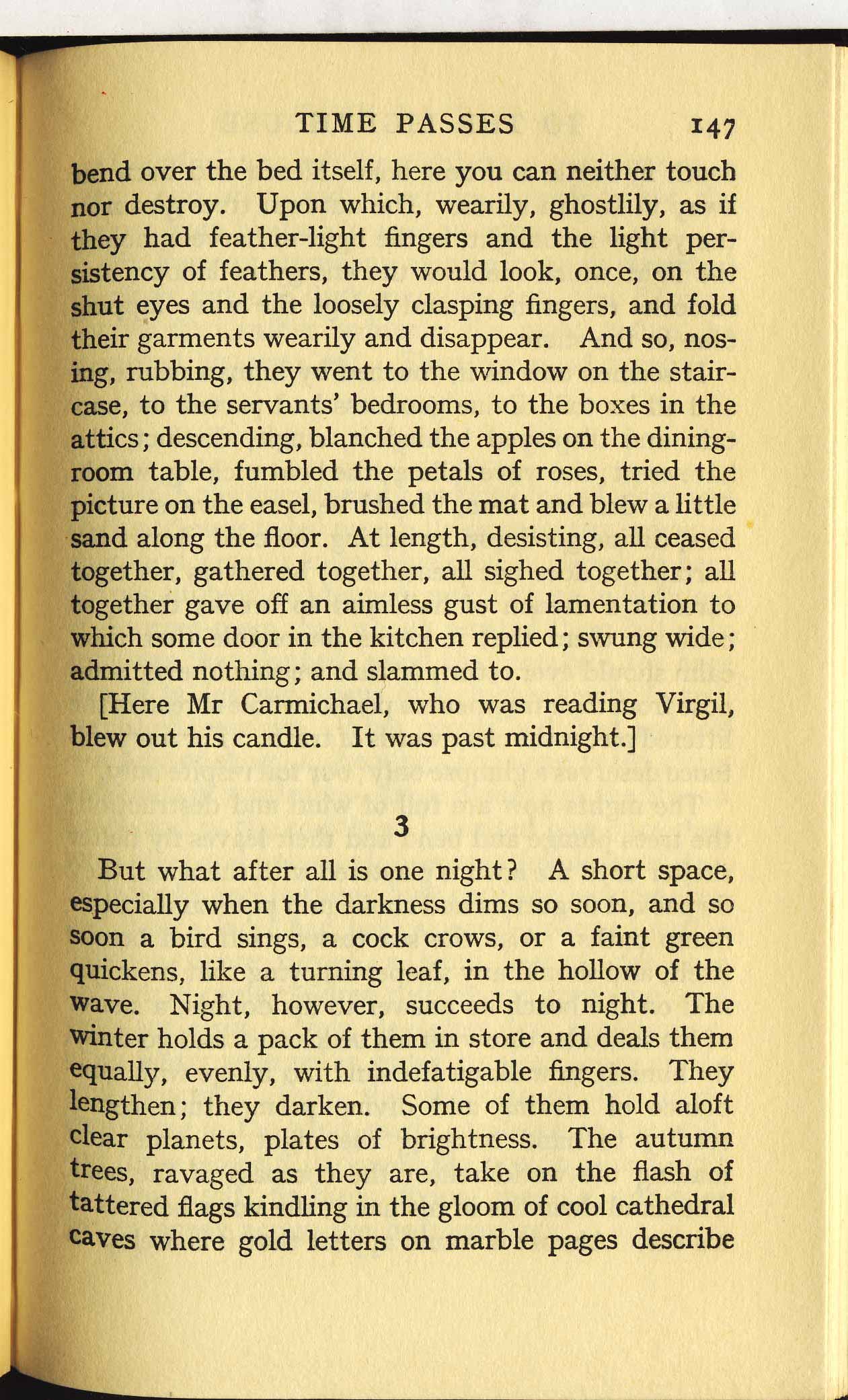Slide to View Image: Opacity 0%

TIME PASSES 147bend over the bed itself, here you can neither touchnor destroy. Upon which, wearily, ghostlily, as ifthey had feather-light fingers and the light per-
sistency of feathers, they would look, once, on theshut eyes and the loosely clasping fingers, and foldtheir garments wearily and disappear. And so, nos-ing, rubbing, they went to the window on the stair-case, to the servants’ bedrooms, to the boxes in theattics; descending, blanched the apples on the dining-room table, fumbled the petals of roses, tried thepicture on the easel, brushed the mat and blew a littlesand along the floor. At length, desisting, all ceasedtogether, gathered together, all sighed together; alltogether gave off an aimless gust of lamentation towhich some door in the kitchen replied; swung wide;admitted nothing; and slammed to.[Here Mr Carmichael, who was reading Virgil,blew out his candle. It was past midnight.]3
But what after all is one night? A short space,especially when the darkness dims so soon, and sosoon a bird sings, a cock crows, or a faint greenquickens, like a turning leaf, in the hollow of thewave. Night, however, succeeds to night. Thewinter holds a pack of them in store and deals themequally, evenly, with indefatigable fingers. Theylengthen; they darken. Some of them hold aloftclear planets, plates of brightness. The autumntrees, ravaged as they are, take on the flash oftattered flags kindling in the gloom of cool cathedralcaves where gold letters on marble pages describe








